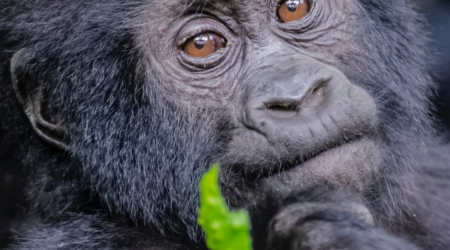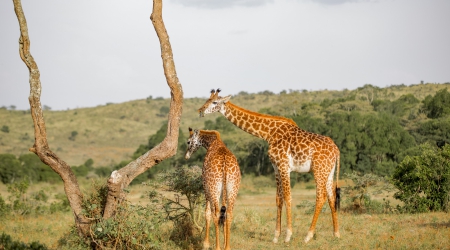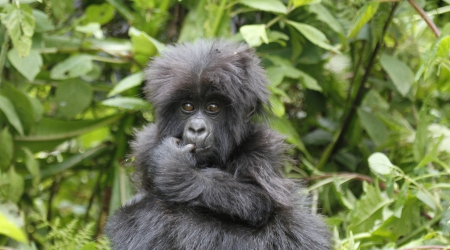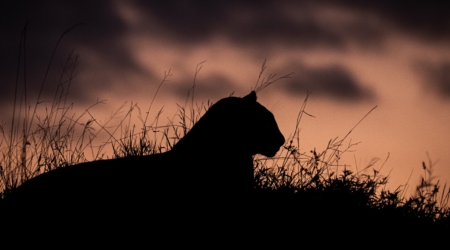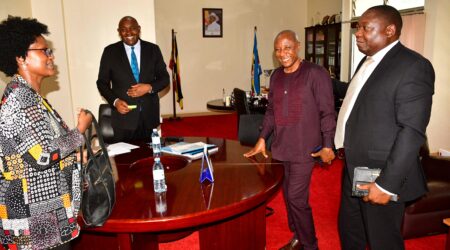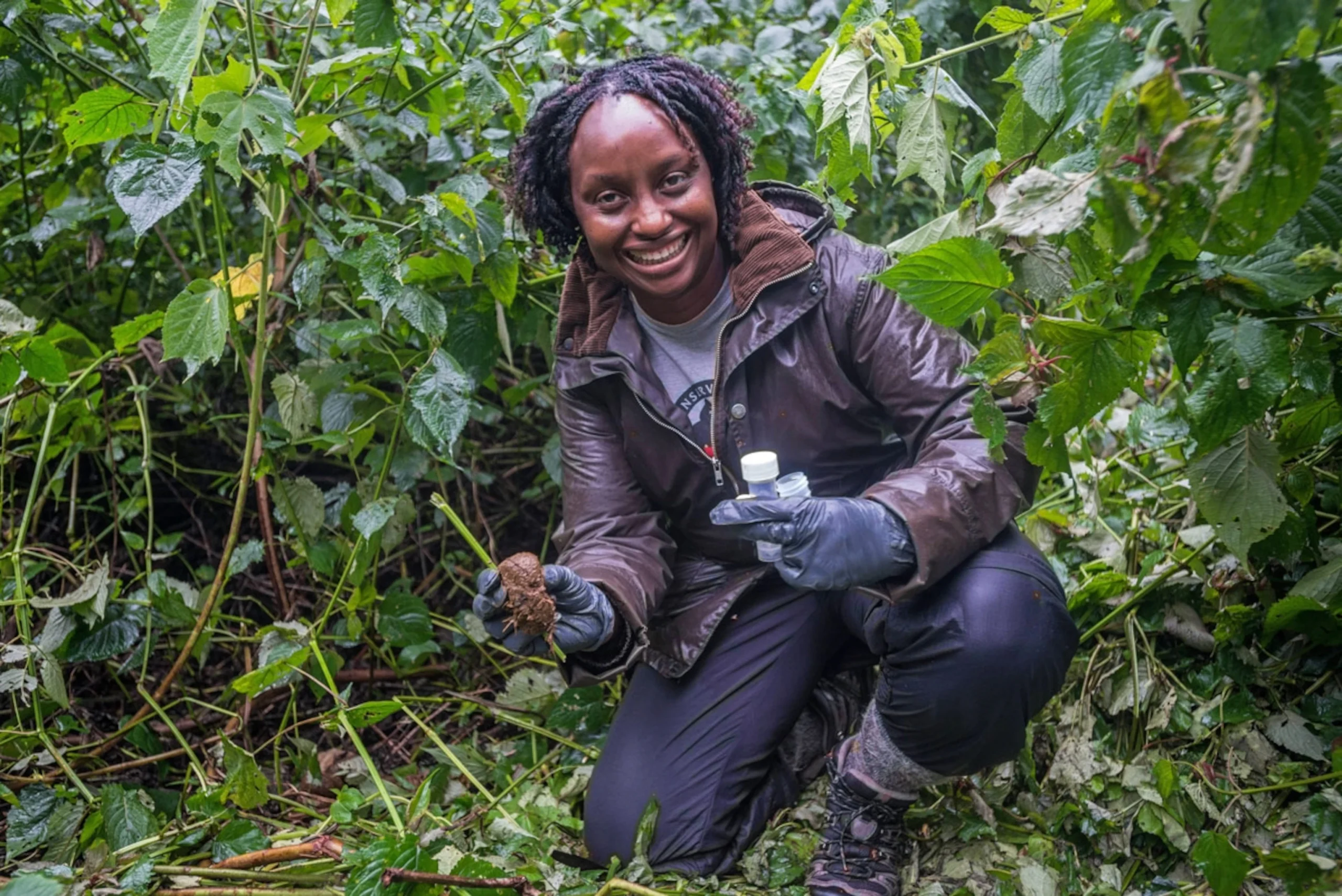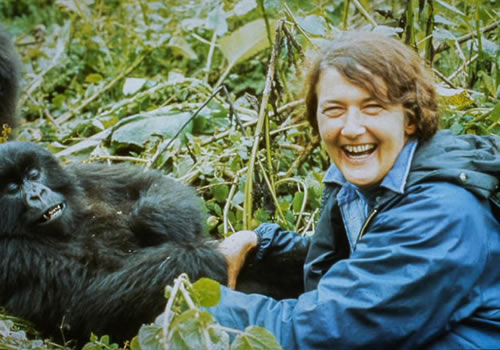Bwindi is a majorly a natural forest that is on the edge of the rift valley escarpment neighboring Virunga ranges and democratic republic of Congo. The forest was formerly known as a crown forest reserve in the year 1932, it was later designated a park in 1991 to protect mountain gorillas. Before the Batwa people occupied the forest and relied on it for hunting, food, medicine and shelter, when it was designated national park, this change had a very big impact on their lives because they were evicted out of the forest and they were forced to settle outside the park.
Bwindi forest is a bio-diverse rich protected forest with a range of animal species, bird life reptiles, plant life including over 100 species of trees, thus named a UNESCO World heritage site in 1994 because of its ecological impact in the world. The park is an afro montane forest in south western Uganda covering 3 districts which include Kabale, Kisoro and Rukungiri.
Currently Bwindi forest national park is under the protection and over look of Uganda wild life authority, the governing body in charge of all protected national parks and reserves in Uganda. In 1993 gorilla tourism started with one habituated gorilla family in Buhoma as head quarter for the whole park coverage. The park covers 331 square kilometers divided under different sector to manage gorilla tourism. These sectors include Ruhija, Nkuringo and Rushaga each with different gorilla families, as of now there are 17 habituated gorilla families.
Bwindi forest national park as a whole has over 400 mountain gorillas out of 1067 endangered species surviving in the world. Other than that the park also inhabits 348 species of birds including 20 endemic species of the Albertine rift valley, forest elephants, 27 species of frogs, 220 species of butter flies, primates including chimpanzees, L’hoest monkeys, vevert monkeys, and carnivores like African civets, African golden cat, and side striped jackals among others.
However the main attraction in the park are mountain gorillas, the main activity is Gorilla tracking which occurs on a daily basis. Bwindi forest National is a vast huge park covering 331 square kilometers, it is thus divided into four tracking sectors namely Buhoma, Ruhija, Rushaga and Nkuringo.
Bwindi forest national park has over 400 mountain gorillas among them are 19 habituated gorilla families open for tracking.
Activities in Bwindi Forest National Park
Gorilla tracking
Gorilla tracking is an ultimate experience meeting the gorillas in their natural habitats. Gorillas live in families of about 5 and above individuals including Silver back the head of the family, Females, juveniles and infants.
On the very day of gorilla tracking clients are expected to wake up very early and prepare for a long trek of about 3-4 hours before you meet a settled gorilla family and only 8 people are allowed per gorilla family.
It is also very important to buy gorilla permits in advance of 3 months to tracking date in order to ascertain availability to avoid last minute disappointment.
Gorilla Habituation Experience
It is an experience you spend 4 hours with the gorillas in their home through research. Gorilla habituation experience is mainly a research based project to ascertain the behavioral character of gorillas and taming wild gorillas get used to human presence and hence after 2-3 years they are opened for gorilla tracking. This experience is only in Rushaga tracking sector the southern sector of Bwindi forest.
Birding
Bwindi forest is a birders haven of 320 birds including 23 endemics of the rift valley escarpment. The bird species include the great blue turaco, Shelly crimson wing, Black saw wind, Regale sun bird, Golden breasted bunting, African pied wagtail, crowned eagle, Handsome-Francolin, Rwenzori Turaco, ameson’s Antpecker, Waller’s Starling, Pink-footed Puff back, Crested Guinea fowl, Crowned Crane, Yellow-rumped Tinker bird, White-headed Saw-wing, Barred Long-tailed Cuckoo among others.
Nature walks
Explore Bwindi forest national park on foot through several nature trails, these trails include primate and waterfall walks, forest walk with impressive bird sightings. The nature trails include Munyanga Waterfall, Rushura hill walk, river ivi walk, Muzabiro trail, Habinyanja Trail. Along these trails you will be able to spot several bird species such as Pel’s Fishing Owl, African Black Duck and Black Bee Eaters, among others.
Cost of gorilla permits
A gorilla permit is a printed card containing names and booking ID on which it was paid for. Gorilla permits in Uganda are at are costed differently per person to track gorillas for one hour where as for Gorilla habituation experience where you spend 4 hours with the gorillas together with the researchers. Gorilla permits are issued by Uganda wild life authority, the only authority responsible for governing all the national parks in Uganda.
Gorilla permits in Uganda are as follows;
- Non Residents $800
- Foreign residents $ 700
- East Africa citizens 300,000 uganda shillings
- Gorilla habituation experience $ 1500
Best time to track Gorillas
Gorilla tracking is a daily activity all through the year, the satisfaction of meeting gorillas and spending time with them is incredible. From January to December regardless of the day, it is for tracking come sunshine or rain. However there months that record a big number of incoming tourists and these are January, February, June, July, august, September and December.
These months are considered the best month because there is less or no rain with clear views however the disadvantage is getting accommodation and certainty of gorilla permits therefore if any one plans to travel with in, bookings should made in advance 3- 6 month to the travel date. Then Months of March, April, May, October and November have less incoming tourists coz they are considered wet seasons thus there is a possibility of getting high end accommodation at relatively lower cost and thus availability of gorilla permits any day.
How to access Bwindi.
Bwindi forest national park is situated south western Uganda, the park can be accessed from Kampala and Kigali city in Rwanda. From Kampala, Bwindi can be accessed at a distance of 478 kilometers about 7-8 hours and from Kigali, the park can be accessed at 2- 3 hours crossing through Kabale-Katuna border or Cyanika border.
Alternatively, there are charter flights connecting to Bwindi via Kisoro and Kihihi which are closer to the gorilla tracking sectors.
Accommodation in Bwindi
A range of accommodation have been established in Bwindi, the established facilities cater for all clients including budget,luxury and high end visitors.
Some of the recommended accommodation facilities in Bwindi forest national park include;
- Four Gorillas lodge
- Rushaga gorilla camp
- Bakiga lodge
- Kiho Gorilla safari Lodge
- Mahogany Springs lodge
- Gorilla Bluff Lodge
- Bweza lodge and so many others.







